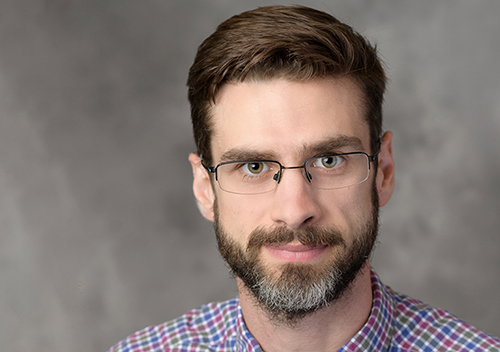ARTICLE FAST FACTS
“Precarious work in the 21st century: A psychological perspective”
Author: Blake A. Allan, associate professor and program director
Department: Psychological, Health, & Learning Sciences
Co-authors: Kelsey L. Autin, Kerrie G. Wilkins-Yel
Journal: Journal of Vocational Behavior
Publication date: April 20, 2021
Topic: precarious work
Overview: A review of literature on risky jobs to advance research on the subject and improve working conditions for marginalized groups
INTERVIEW WITH THE AUTHOR
What is the purpose of the article?
The article was really focused on highlighting the issue of precarious work, the ways
precarious work has been a long-standing issue for marginalized people in the U.S.
and how psychologists can help.

For those unfamiliar, what is the difference between precarious work and work precarity?
Precarious work describes aspects of jobs that are uncertain and risky. Work precarity
describes the psychological experience of having precarious work. For example, precarious
work would refer to a lack of protections against discrimination or harassment. But
work precarity is feeling unsafe at work because of those.
Can you describe the research process?
We read everything we could on precarious work. It was tough because psychologists
don’t really use the term “precarious work” often, so we were reading a lot from interdisciplinary
fields. It was pulling from literature to see all these fields that have looked at
this problem in different ways and distilling that down into a framework for other
psychologists that would be helpful.
What is a psychological framework?
In the context of this paper, we viewed a theory as making specific propositions and
hypotheses about how things are related, but a framework as a guiding model that can
help people think about different constructs and how they all relate to facilitate
studies.
So, just as an example, not everyone who has precarious work is going to have negative outcomes because some people just have a lot of resources. Maybe I have a precarious job, but my spouse is well paid, and we have a lot of wealth that’s intergenerational. There are negative things about my job, but I’m not as negatively affected as someone in poverty who really needs the job to survive. The framework would facilitate a study on that and provide suggestions on buffering factors, what variables you want to measure as predictors and so on.
How is the framework you proposed unique?
The framework presented in the current article offers a way to integrate both macrolevel
perspectives and psychological theories. It is connecting this broader literature
on precarious work from fields like public health to psychological literature. What
we’re saying is precarious work doesn’t directly cause poorer mental health. It causes
people to live in stress, anxiety and worry, and that creates health problems long
term. We’re bringing in psychology literature to what people are doing in sociology,
public health and so on.
What are the social implications of this work?
Our goal was to say, “Hey, this is a big problem. It’s becoming a bigger problem,
and it’s something we’re going to need to deal with, and psychologists can help. Here
are ways psychology can help contribute to informing interventions.” We’re hoping
to inform policy changes and say working in these types of jobs is really bad for
health, and that provides motivations for finding ways to support people.
Why is this subject important to you?
Earlier in my career, I did a lot of research on what makes our jobs meaningful. I
did that because it was something I had struggled with. What’s the meaning of life?
My work? But I felt that was, in some ways, a privileged problem. I was thinking,
“What is the biggest problem in my field that we need to address?” That led me to
underemployment and precarious work because that’s a major problem. We have very few
safety nets for people to make it when work is becoming more and more uncertain.
What will you research next?
I received a grant from the American Psychological Association to study low wage workers
during COVID-19, which we’re rolling out now. We’re looking at how low wage work is
related to mental health and different fears like the fear of contracting COVID-19,
job insecurity and being unable to meet basic needs. Low wage workers have suffered
the worst of the COVID-19 — economic consequences, health consequences — and that’s
of course connected to marginalization in the U.S. I’m also looking at the relation
between precarious work and substance use.
— By Lillian Hoang
— Photo courtesy of Blake Allan